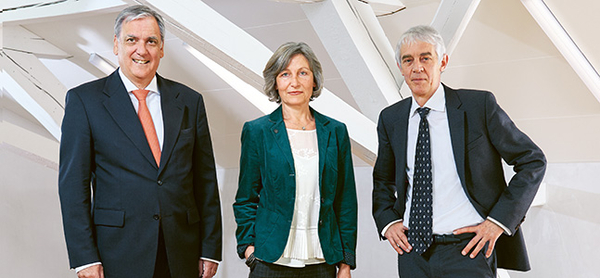From open science to open frontiers
Dear researchers and friends of research,
2015 was an intense year for the Swiss National Science Foundation. On the one hand, we completed our transitional measures to replace the highly competitive international grants offered by the European Research Council (ERC), from which researchers in Switzerland were unfortunately excluded for six months. On the other, we started tackling a number of local challenges in order to make Swiss research more efficient in the future.
For example, the main funding scheme of the SNSF, project funding, has been revised in order to allow for more flexibility by introducing an extended project duration of four years. We also identified the need for supporting academic careers better. For this reason, we earmarked about one fifth of the total budgeted funds in the coming years for measures aimed at facilitating careers in science. These measures include innovations in the funding schemes that promote early scientific independence, grants helping assistant professors on tenure track and the introduction of a new scheme providing adequate support for outstanding women researchers. The overall goal of these innovations is to offer researchers simpler schemes, to reduce their administrative workload and to leave more time for research and careers. All the mentioned innovations, and some more, will be introduced and extended in the coming years (for more information, please refer to the multiyear programme 2017–2020 on the SNSF website).
But 2015 was also the year when we started to address the upcoming challenges of opening up the way research is done nowadays, with the goal of making future research more transparent, more collaborative and ultimately more reproducible. To do so, we organised a workshop where we invited key members from different funding agencies around the world, such as the National Institutes of Health in the US, the Research Council of Norway, the League of European Research Universities and many more, to hear how they envisage to promote the openness of science in the coming years. The main article of the SNSF Profile 2015–2016 addresses precisely this topic in greater detail.
From the above challenges and innovations it becomes evident that the current year, 2016, as well as the rest of this decade, will probably also be very intense for us. After all, there are no quick fixes to such major issues. However, for the SNSF it is clear that all of them have to be addressed. In addition, we are convinced that without an association of Switzerland with the European research space, the current excellence of Swiss research and its high international reputation will suffer. And to make our voice heard, in May 2015 we appealed to the Federal Council to take into account the urgent needs of science and research in Switzerland when implementing the mass immigration initiative.
There are thus many major issues in science policy to tackle in the coming years. In the meantime, however, research continues to progress at an unprecedented pace, and new areas, such as the precise and efficient editing of human genomes, personal drones for daily uses, an expanding internet of things, as well as 3D printers and a new breed of artificial intelligence seem to be just around the corner, to name but a few. To help us understand their wider implications for society, it will be crucial to use the insights provided by the humanities and social sciences. We had better get ready for these new frontiers of science, since they will bring further challenges for us as a funding agency, and as a society.


